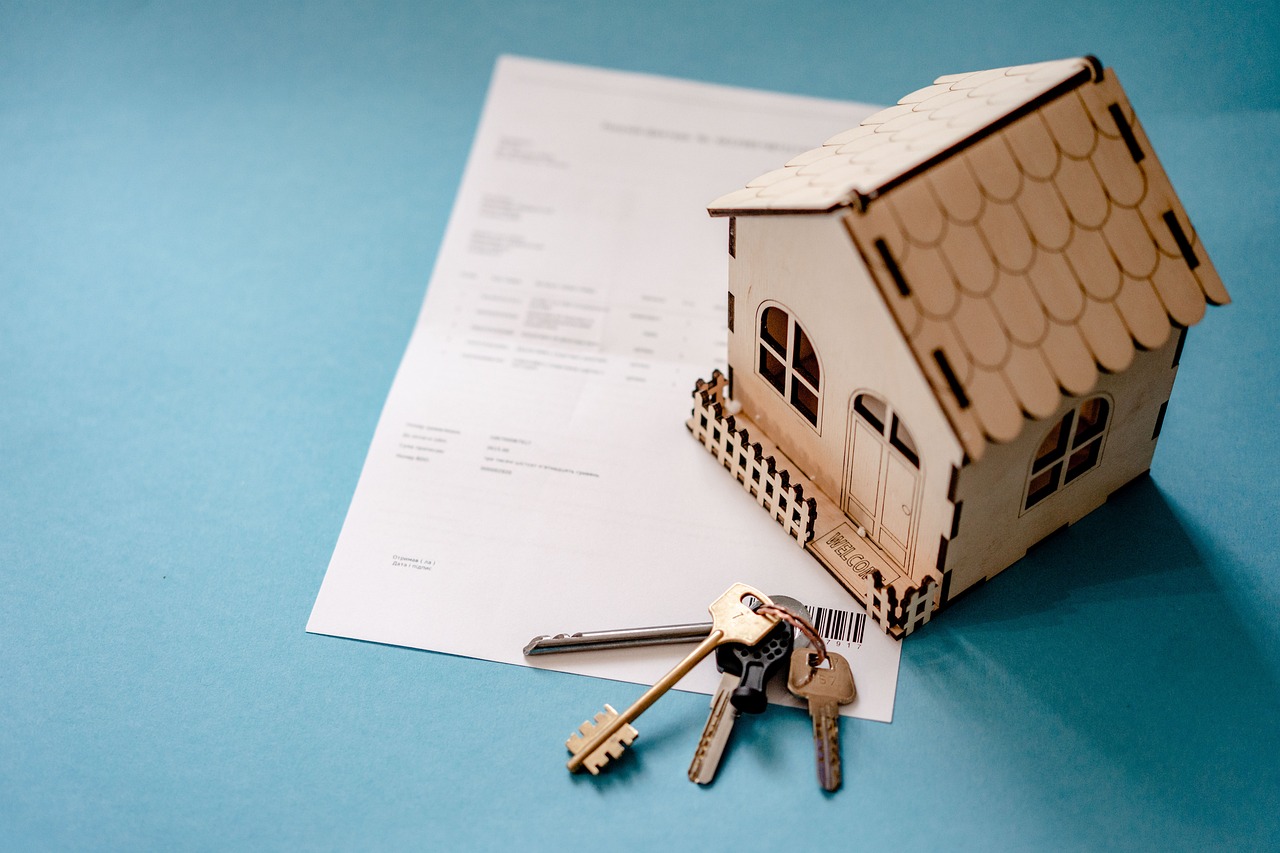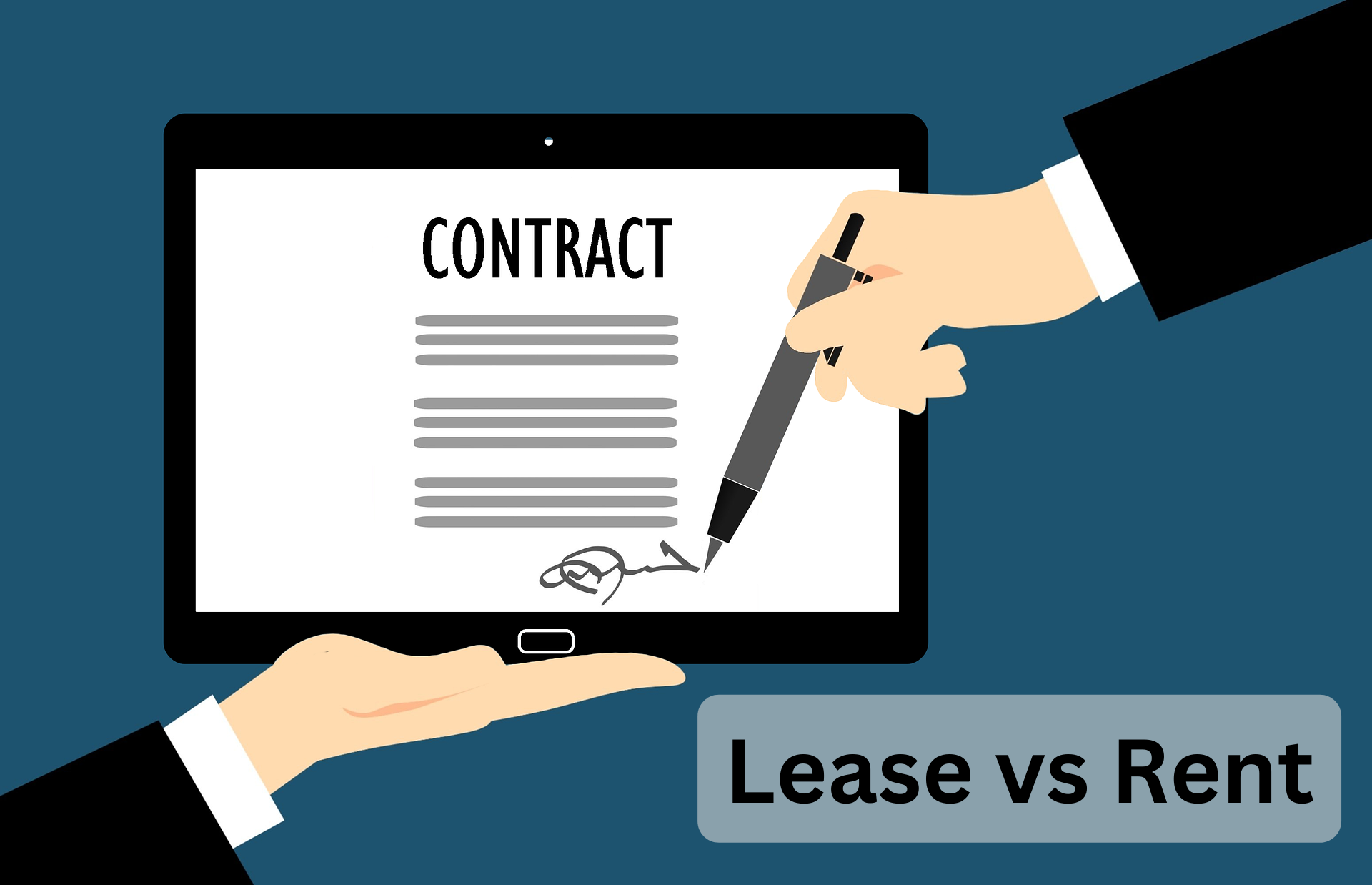When looking for a new place, you’ll find yourself juggling different things at once, like budget, location, and amenities. Also, there comes the question, “Should I lease or rent?” It’s a common dilemma, and if you’re not entirely sure about the difference, don’t worry, you’re not alone. Landlords and property managers often throw these terms around like they’re the same thing, and yes, they might sound similar, but they differ in some key ways, especially when it comes to how long you plan to stay.
Lease vs. rent: A rental agreement is usually more flexible, offering a month-to-month commitment, while a lease typically locks you in for a longer time, like six months or a year. Both have their good and bad sides, and you should understand these differences before committing to a property. This article has explained everything you need to know about leasing and renting agreements, such as the definition, differences, and similarities.
What Does Lease Mean?
A lease refers to a legally binding contract or agreement between you (the tenant) and the property owner (the landlord). So, a contract on lease outlines the ground rules for your time in the property, from how long you’ll remain a tenant to the rules to follow, like pet policies and parking availability and how much rent you’ll pay.
When you define lease, it’s all about commitment. An apartment lease agreement typically lasts six months, a year, or even longer. It’s good because it gives you a sense of stability since your rent and terms won’t change during that time. Now, once the lease ends, some landlords might let you switch to a month-to-month arrangement, but that depends on the specific terms of your agreement.
Overall, with a lease, you’ll get a fixed rent and a secure place to call home for a longer time.
What Does Rent Mean?
Rental refers to an arrangement where a landlord allows you, the tenant, to use their property in exchange for consistent monthly payments. So, unlike a lease, rent usually involves shorter commitments, most commonly month-to-month agreements. If you’re looking for a temporary stay or need the freedom to move with less hassle, this option will be great for you.
At the end of each monthly term, the agreement might auto-renew unless you or the landlord notify the other by writing, usually 30 days in advance.

Lease vs Rent: What’s the Difference?
Having explained the meaning of rent and lease, the next question is: What’s the difference between renting and leasing?
The key difference between lease and rent typically lies in the flexibility and duration of both agreements. A lease provides long-term stability and clarity for both parties, while rent emphasizes flexibility and convenience.
In a lease, the tenant commits to staying for a fixed duration. This means you’ll enjoy stable terms throughout the agreement. For example, if you sign a 12-month lease at $1,500 per month, your landlord cannot increase the rent or change the terms until the lease expires. However, breaking a lease early can come with penalties that might knock you off your feet, such as losing your security deposit or paying additional fees.
Renting, on the other hand, offers a more flexible arrangement, and the contract is typically renewed on a month-to-month basis. Unlike leasing, renting gives tenants the freedom to move out with short notice. It could even be a 30-day notice, but that depends on the terms.
Now, let’s look at the difference between for lease and for rent in a comparative table:
| Feature | Renting | Leasing |
|---|---|---|
| Duration | Short-term, often month-to-month | Long-term, usually 12 months or longer |
| Agreement Flexibility | High flexibility, easy to terminate with notice (30–60 days). | Less flexible, with penalties for early termination. |
| Payment Terms | Monthly payments | Monthly or annual payments; may include upfront costs like security deposits. |
| Renewal Options | Automatic renewal unless notice is given | Requires renegotiation or vacating at the end of the lease term |
| Property Modifications | Limited or none without the owner’s consent | May allow for minor modifications with landlord approval |
| Maintenance Responsibilities | Typically the landlord’s responsibility | Varies; tenants may handle small tasks like changing filters or lightbulbs |
| Termination | Easy to terminate with notice | Breaking a lease can result in penalties |
| Use of Property | Primarily residential | Can be for residential or commercial use |
| Legal Implications | Governed by rental laws, favoring tenant protections | Governed by leasing laws applicable to tenants and landlords. |
With a full insight into the difference between lease vs rental agreement, how about their advantages and disadvantages? Weighing their pros and cons will help you in deciding which property to settle for.
Pros & Cons of Lease Agreement
If you’re wondering whether to go for a contract on lease, here are the good and bad sides you should have in mind:
Pros of Lease Agreement
- Stable Property: A lease guarantees you a home for a longer period. You’ll have more stability and peace of mind because the contract lasts a year or more.
- The rent is consistent: Upon signing a lease contract, the landlord agrees to keep the rent the same throughout the team. This means you won’t get any surprise rent hikes, and you can adequately plan for your next rent.
- Save cost: Longer leases can be a win-win for both you and your landlord. The landlord saves money by avoiding the hassle and expenses of finding new tenants, and you, on the other hand, may enjoy lower rent for your commitment.
Cons of Lease Agreement
- Lack of Flexibility: Yes, taking a lease means committing to a home for a year or more. While the stability is great, it can be tricky, especially if life throws a curveball that requires you to move. It could be a job transfer, income loss, or even a sudden need to relocate. You can’t just up and go.
- Ending a Lease Comes at a Cost: Now, if you break the lease agreement, you might lose your security deposit or have to pay rent until a replacement tenant is found. That can be a lot to deal with.
- High Restrictions: You won’t be allowed to take certain actions with a lease. Perhaps you want a pet or are thinking of subletting or adding a roommate. If your lease doesn’t allow it, you might feel trapped by the rules.
Pros & Cons of Rental Agreement
Perhaps you’re considering a rental agreement, but staying aware of the advantages and disadvantages helps to keep your expectations in check. Let’s look at the pros and cons below:
Pros of Rental Agreement
- Short-Term Commitment: There’s more flexibility with a rental agreement. The month-to-month contract allows you to stay as long or as little as you like. It’s the perfect choice if you’re exploring new areas, on a temporary assignment, or just figuring out where you want to settle.
- Convenient for Life Changes: Also, when life takes unexpected turns, like a new job or personal commitments, a rental agreement makes it easy to pack up and go without long-term obligations or dealing with the penalties of breaking a lease.
- Room for Negotiation: Unlike a lease, rental agreements allow you to renegotiate terms every month. It could be a rent reduction, splitting bills with a new roommate, or getting approval for a pet. Truly, you’ve got more wiggle room.
Cons of Rental Agreement
- Lack of Stability: With the flexibility rent offers, it can feel uncertain because, at the end of each month, your landlord could decide not to renew, which leaves you scrambling to find a new place even if you’re not ready to move.
- Risk of Rent Increase: Since rental agreements renew every 30 days, there’s a higher chance of rent increases. It could be due to rising market prices or upgrades to the property. Truly, these changes can make it harder to stick to your budget.
- Potentially Higher Costs: Month-to-month rentals often come with higher rent. Landlords may charge more to cover frequent maintenance, tenant turnover, and the added flexibility they offer tenants.
Similarities Between Lease and Rent
Even with the difference between contract to lease vs rent agreement, there’s a gray area where both types of contracts share some similarities. Let’s break down these similarities below:
- Legally Binding Agreement: Both leases and rental agreements are legal contracts that bind both landlords and tenants. They spell out the rules for living in the space—like who’s paying what, when, and who’s fixing things when they break.
- Payment of Rent: No matter which route you go, one thing’s certain: rent is to be paid. Both leases and rental agreements make it crystal clear how much you owe, when to pay it, and how to send it. This way, financial expectations are clear.
- Security Deposit: Whether you choose to rent or lease, you’ll still pay a security deposit, which covers damages beyond normal wear and tear. At the end of the lease or rental period, you may have your deposit back, provided the property is in good condition.
Now, if you’re looking for flexible rental options, uhomes.com offers accommodations that are tailored to your needs, including properties with short-term lease options. All our verified properties, so feel free to choose the one that best suits your budget. We’ll be here 24/7 to ensure that you don’t stress to get good accommodation. Once you complete the online application, we’ll take it up from there.
Is it Better to Lease or Rent an Apartment?
Now that you know the difference between lease versus rent, deciding on which to go for ultimately depends on your lifestyle, needs, and financial situation. If you’re looking for something stable, especially regarding rent costs and duration, a lease is a better bit. On the other hand, if you crave the freedom to up and go anytime, renting is your best option.

Bottom line of Differences Between Lease and Rent
Hopefully, this article has cleared your confusion on the difference between lease vs rent. You can confidently choose the option that works best for you. Overall, choosing between leasing vs renting is more than just the contract. It’s about what works best for your life. So, take your time, and weigh the pros and cons of each contract before making a choice. After all, your home should be a place where you feel comfortable and secure.
FAQ on Lease vs Rent
In India, rent and lease are different mainly in terms of commitment and duration. A lease is a fixed-term agreement, offering stability and predictable terms, while renting is more flexible, allowing you to stay on a month-to-month basis without a long-term commitment.
A lease on a house is a contract where the tenant agrees to rent the property from the landlord for a set period. In return, the tenant gets to live in the house, and the landlord receives regular payments, usually monthly.
A lease typically lasts six months to a year. During that time, your rent stays the same, and the landlord can’t raise it or ask you to move unless the lease ends. It’s a set commitment that gives you stability.
Renting is usually more expensive month-to-month because it gives you flexibility, which most landlords charge for. A lease, on the other hand, often has lower monthly costs since it locks you in for a longer period.
A lease is a fixed-term agreement that runs more than a year, offering stability with a locked-in price. But if you need to move unexpectedly, you’re stuck paying for the remaining term. A rental agreement is month-to-month, giving you flexibility to leave with 30 days’ notice, but rent can change more frequently.








